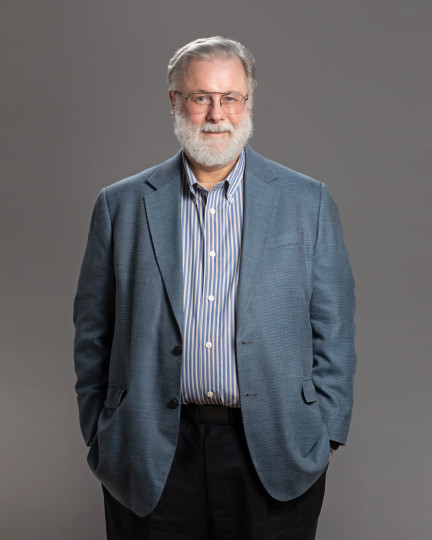IWK Health’s Pediatric Pain Management Program is celebrating a major milestone – 30 years of helping children manage pain with compassion and expertise. IWK anesthesiologist Dr. Allen Finley was the driving force behind the program’s creation three decades ago, inspired by a single patient.
“I really got the incentive to start this initially from Caitlyn, a child suffering with severe advanced cancer,” Finley recalls. “To be able to make things better for her and her parents was one of the greatest privileges of my career.”
After caring for Caitlyn, Finley found himself approached more frequently by colleagues in oncology – and beyond – to consult on a variety of pain problems. The need for a comprehensive service became clear, and in 1995, it became a reality.
Two pillars: acute and complex pain care
The program initially launched with two key components.
The acute pain service focused on managing post-operative and inpatient pain — most commonly for children recovering from surgeries or dealing with conditions like cancer. The team was made up of a clinical nurse specialist and a small rotation of anesthesiologists.
The complex pain clinic was created to treat children dealing with chronic or difficult-to-diagnose pain. The original team included Finley, a clinical nurse specialist, a physiotherapist, and clinical psychologist Dr. Patrick McGrath – a pioneer in the field of pediatric pain management and the first to author a comprehensive book on the subject.
The complex pain clinic runs similarly today: a physician, advanced practice nurse, clinical psychologist, and physiotherapist see patients and families as a team. Together, they develop a comprehensive plan incorporating psychological, physiological, and pharmacological approaches to manage the pain.
“For the patient to be able to tell their story and have it listened to and taken seriously by four health professionals, can be a very therapeutic part of what we do,” Finley explains. “Because in many cases families haven’t been listened to.”
A complex and common problem
Complex – or chronic – pain in children is more common than many realize. The clinic helps patients with a variety of conditions such as widespread generalized pain, joint pain, nerve pain, and recurrent headaches. The emotional and psychological impact is often just as severe as the physical.
“Quite a few patients will come in and they or their parents will say ‘well, I wanted to be such and such when I’m through school, but I won’t be able to because of the pain’,” says Finley. “I try to stop that thought because there’s nothing that should stop them from planning or trying to do the things they want to do.”
Raising the standard for acute pain management
Before 1995, acute, post-operative, and trauma-related pain in children was not well-managed.
“Surgeons would order intermittent medications for pain, but nurses hadn’t really been trained in how to assess pain and so many children did not receive enough or the right kinds of medications,” Finley recalls.
That changed with the establishment of the acute pain service. Today, its dedicated team of anesthesiologists and advanced practice nurses has its finger on the pulse of pediatric pain management.
“They’re leading innovative nerve block techniques and infusions that really help with acute pain management after cardiac surgery, spine surgery, major orthopedic surgery and abdominal surgery and really anything else where post-operative pain isn’t as simple straightforward matter,” explains Finley.
The team also follows vulnerable patients, including newborns undergoing surgery or children with complex neurological and respiratory conditions, ensuring that even the most delicate cases are managed with precision and care.
Looking to the future
Finley hopes the future holds funding for increased clinic time, and eventually a day hospital environment to provide intensive treatment in severe cases of chronic pain.
While it hasn’t been without its challenges, Finley says watching the cultural shift around pain management and seeing the program and its patients thrive over the past 30 years has been an amazing experience.
“Nobody on our hospital staff in any discipline would now question whether children have pain, whether pain should be managed, whether it should be prevented. Getting ChildKind certification last year was a great acknowledgement of what has been accomplished and something I feel pretty proud of.”
